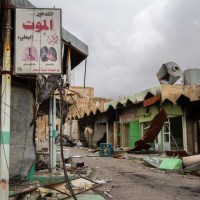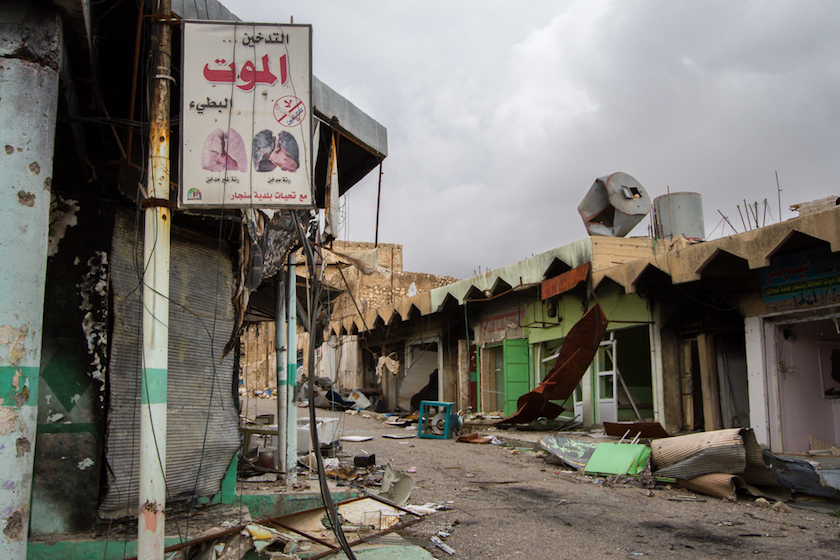We roll down streets pocked with airstrike craters big enough to swallow our car whole, lurching back and forth between lanes. Sometimes it’s hard to find enough level pavement to keep moving forward.
We’ve gotten used to the bombed-out landscapes that flash by as we criss-cross the northern part of Iraq, visiting families who need emergency aid, help getting back to work, and medical care at medical clinics.
In some places, the destruction goes on for miles and miles. In others, the work of bullets and vandals has made buildings look like they’re in worse shape than they really are. When this war is over, the energy spent liberating these communities from ISIS will turn to rebuilding.
Sadly, the task of rebuilding, expected to take decades, will be hard to even begin. Any of the skilled workers who built and grew these communities are gone now. They’ve either relocated to safer places or been killed by the violence.

Our vision of empowerment is rooted in putting displaced people back to work by identifying skills they already have and filling in the gaps that are keeping them out of the workforce.
Sometimes that means providing a sewing machine and fabric. Sometimes that means giving them a small herd of sheep they can raise into a large herd.
But war creates extraordinary circumstances. Before displaced Iraqis can go home after war, before they can start rebuilding their communities, they need a home to go to.

Countless buildings are damaged beyond repair—some bombed from above by airstrikes, some at from the street, many exploded from the inside—packed with dynamite by ISIS to make sure that no one could return for a long time. The only thing left to do is to pull down the remains and cart the rubble away.
But some buildings just need repairs to make them useable again. When we visited the town of Batnaya, for example, we met Na’aima outside what used to be her home before ISIS captured the town. In blue and black letters, they had sprayed, “No Access by order of the Islamic State.”
ISIS used her home as a warehouse. Other exterior walls were painted with inventory lists of supplies stored inside. Na’aima’s home is damaged, but the structure is still intact. Like so many other buildings, what is most needed now is to make them secure by replacing blown out windows and doors.
Once repaired, homes like Na’aima’s will be the base from which the rest of the community will rise.

You are providing a way for that to happen.
You are giving skills and tools to displaced men so they can start working and earning a living quickly, setting them up to return to liberated towns and villages and be part of the rebuilding process.
They will be among the first to return, the ones who make it possible for others to follow.
And you’re doing it with aluminum and PVC.
In modern Iraq, aluminum and PVC are widely used to create windows and doors that are easy to clean, weather-tight, quick to build and install, and cheaper than traditional iron. The same materials can also be used to build starter kitchen units and cabinets.

You funded the first pilot course: 10 weeks of training in how to build, track time and materials, and keep a project within budget—all the skills these men need to grow successful businesses, provide for their families, and help communities rebuild.
Students are gaining knowledge they need to return to areas devastated by war, securing damaged buildings with new doors and windows, which will allow residents to return.
For those returning families with more resources, students will also have the know-how to build kitchens cabinets, to make homes livable again.
Before this training course, many of these men couldn’t imagine how they could ever afford to return home. You changed their situation from how will we return? to when?
You gave them the ability to be the first in and last to leave in their own hometowns.

In the coming days, we’ll introduce you to some of these remarkable men.
You can stand with them as they rebuild their communities and bring new life to Iraq—by donating to provide tools or by shopping from our collection of Father’s Day gifts, each of which helps refugee dad in return to work and reclaim their lives.
Help these men rebuild their homes and communities.


